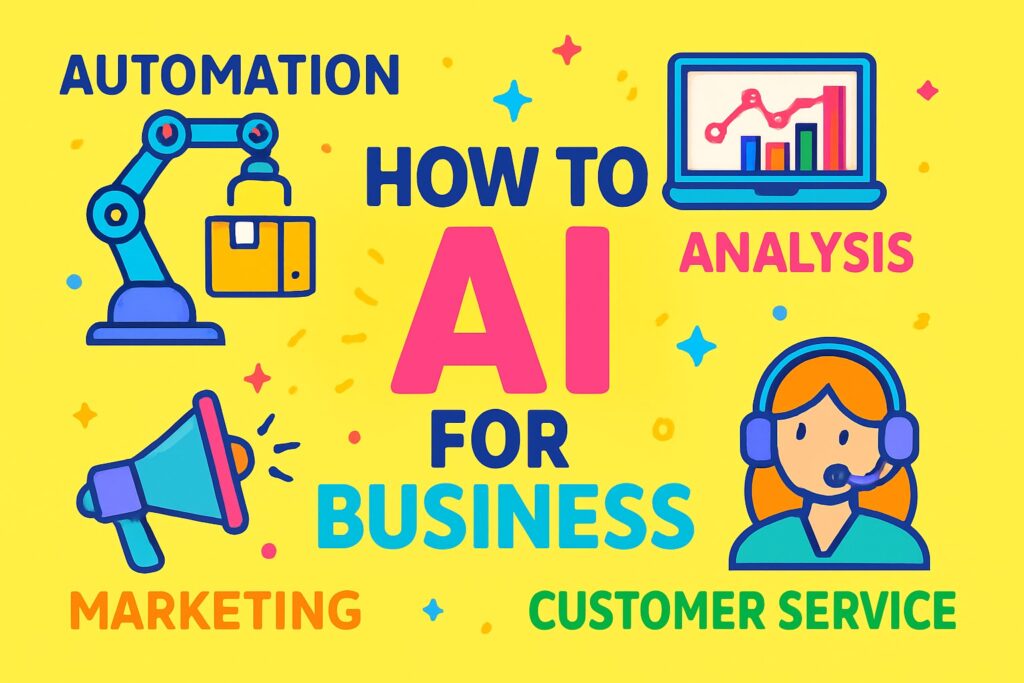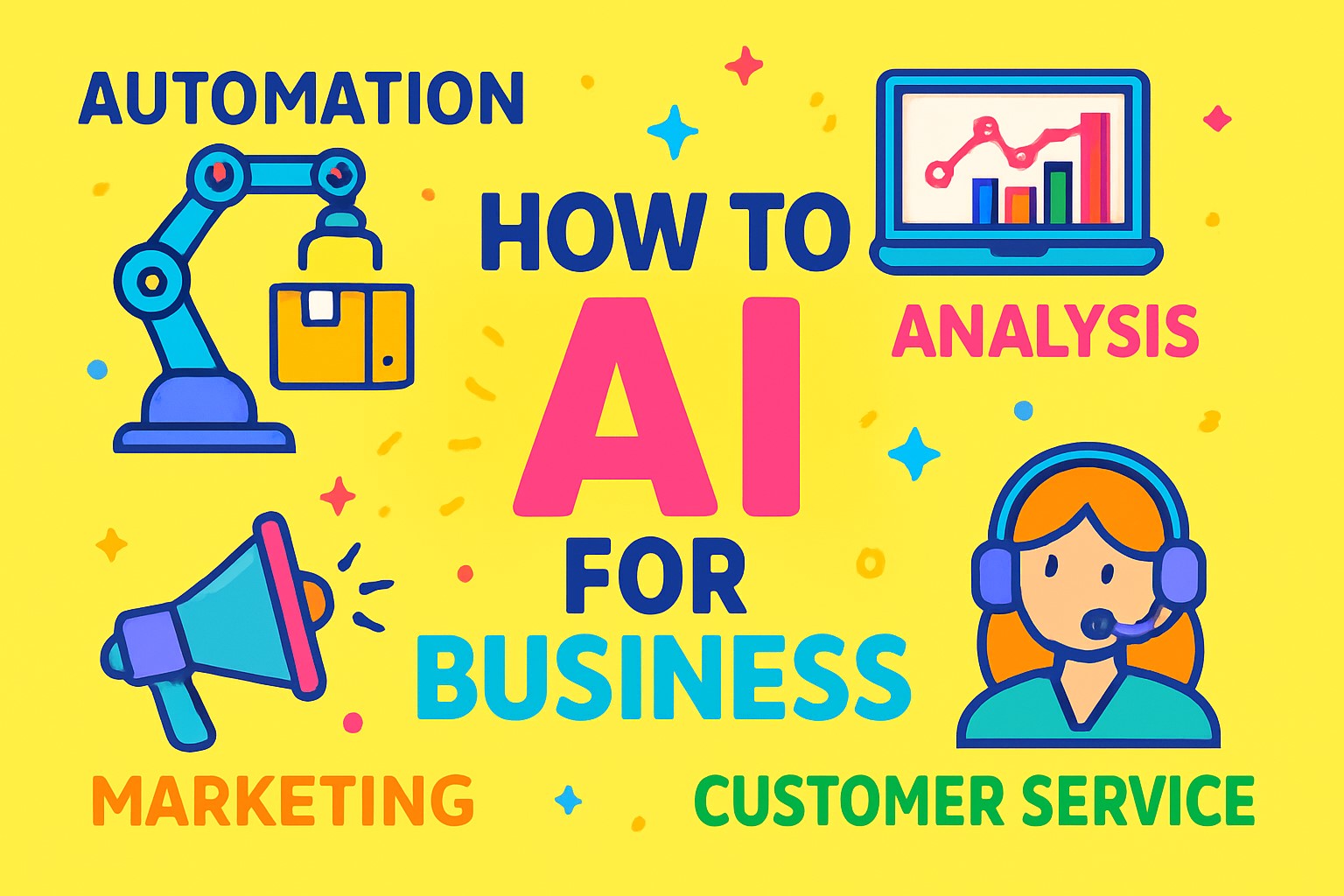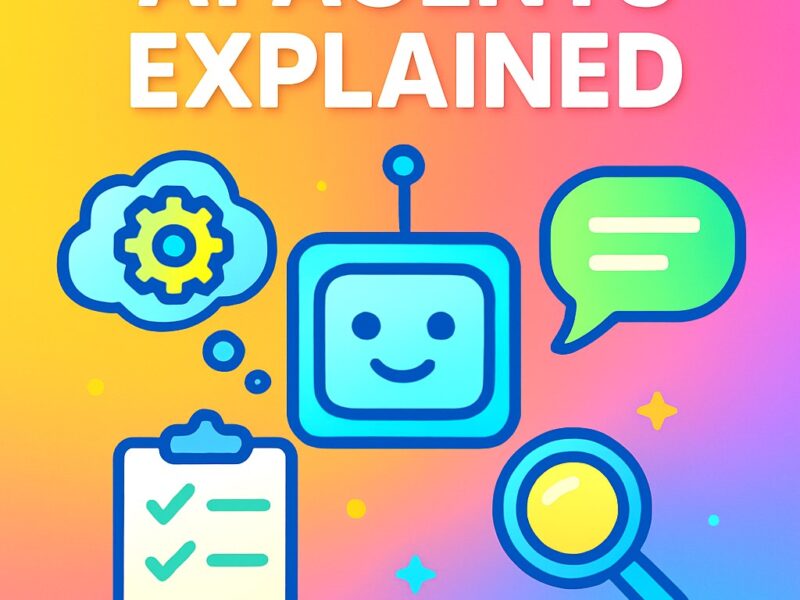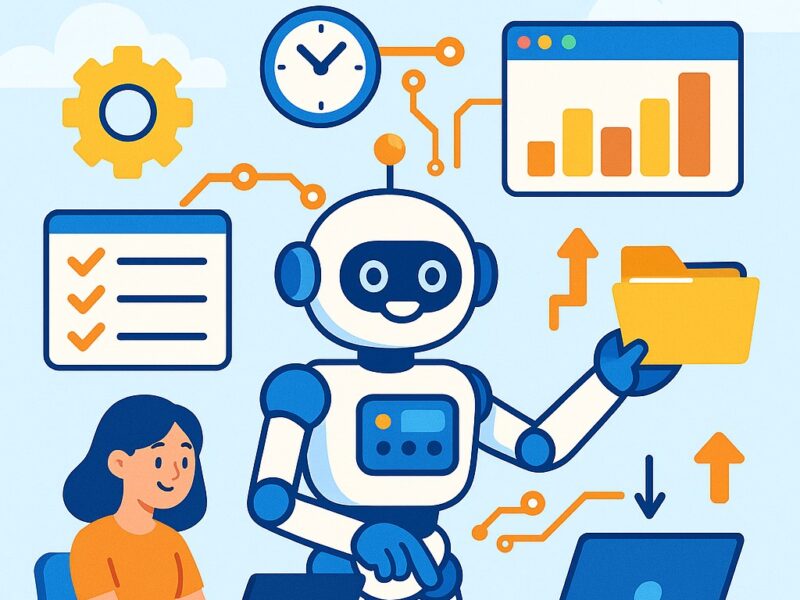How To Use AI For Business

Artificial intelligence (AI) has become a powerful tool for businesses of all sizes. Whether you’re a small startup or a large enterprise, AI can help you improve operations, enhance customer experiences, and drive more revenue. Knowing how to use AI for business is now a critical skill that can set you apart from your competitors.
In this article, we’ll explore practical ways businesses can harness AI, how to start using it effectively, and what key areas to focus on for maximum results.
Understanding the Role of AI in Business
AI is not just about robots or futuristic technology. In business, AI refers to software systems that can perform tasks typically requiring human intelligence. These tasks include learning, problem-solving, understanding language, recognizing patterns, and making decisions.
Businesses today use AI in various areas, such as customer service, marketing, operations, finance, and product development. AI systems can analyze large amounts of data, automate routine tasks, and even predict future trends, helping business owners make smarter decisions.
Benefits of Using AI for Business
Before diving into how to use AI, it’s important to understand why it’s worth your attention. Here are some major benefits:
-
Increased Efficiency: AI can automate repetitive tasks, freeing up time for employees to focus on more important projects.
-
Cost Savings: Automation reduces labor costs and increases productivity.
-
Better Decision Making: AI tools can analyze data faster and more accurately than humans, providing insights that drive smarter business strategies.
-
Personalized Customer Experiences: AI helps deliver customized services to customers based on their behavior and preferences.
-
Competitive Advantage: Early adopters of AI often gain a significant edge over competitors still relying solely on traditional methods.
Practical Ways to Use AI for Business
Automating Customer Service
One of the most popular uses of AI in business is customer service automation. AI-powered chatbots and virtual assistants can handle simple customer inquiries 24/7. They can answer frequently asked questions, help customers navigate your website, and even assist with purchases.
Using AI in customer service not only improves response times but also reduces the workload for human agents, allowing them to focus on more complex issues.
Enhancing Marketing Strategies
AI can revolutionize your marketing efforts. AI tools can analyze consumer behavior, predict future buying patterns, and even suggest personalized marketing messages. By understanding what your audience wants, you can create more targeted campaigns that lead to higher conversion rates.
Some businesses use AI for content creation, social media scheduling, email marketing personalization, and ad targeting. These AI applications allow you to maximize your marketing ROI with less manual work.
Streamlining Operations and Logistics
AI is excellent for improving back-end operations. For example, AI can optimize supply chain management by predicting inventory needs based on sales trends. It can also help schedule deliveries more efficiently and monitor equipment performance to predict maintenance needs.
Using AI for operational tasks results in fewer delays, reduced costs, and a smoother business process.
Improving Sales Processes
AI can assist sales teams by identifying leads most likely to convert. Predictive analytics models score leads based on their behavior, interactions, and demographics. This way, salespeople spend more time focusing on prospects who are ready to buy.
Additionally, AI can recommend upselling or cross-selling opportunities, increasing the average transaction size.
Data Analysis and Business Intelligence
AI tools can quickly sift through vast amounts of data and uncover insights that would take humans much longer to find. Business intelligence platforms powered by AI can track customer feedback, monitor competitor activity, and measure the success of campaigns.
With AI, you can make data-driven decisions faster and more accurately, giving your business a strategic advantage.
How to Get Started with AI for Business
Identify Your Business Needs
Before implementing AI, you should identify areas where it can bring the most value. Ask yourself:
-
Which processes are repetitive and time-consuming?
-
Where are the biggest pain points in customer service?
-
What areas of the business rely heavily on data analysis?
Once you identify the opportunities, you can choose the right AI tools to address them.
Choose the Right AI Tools
There are many AI platforms designed specifically for businesses. Look for solutions that match your needs, are easy to integrate, and offer good support and training. Popular categories include AI chatbots, customer relationship management (CRM) systems, marketing automation tools, and data analytics platforms.
Make sure the tools you select can scale with your business as it grows.
Start Small and Scale Up
Implementing AI can feel overwhelming, so start with one project. For example, deploy a chatbot on your website or use AI to analyze marketing data. Once you see positive results, you can expand AI into other areas of your business.
Taking small steps helps your team adjust to the new technology and reduces the risk of costly mistakes.
Train Your Team
Your employees must understand how to use AI tools effectively. Offer training sessions and provide resources to help them get comfortable with the technology. Emphasize that AI is a tool to assist them, not replace them.
A well-trained team will help you maximize the value of your AI investment.
Monitor and Improve
After implementing AI solutions, continuously monitor their performance. Collect feedback from users, track key performance metrics, and stay updated on new AI developments. AI technology evolves rapidly, and staying flexible ensures your business remains competitive.
Common Challenges When Using AI for Business
While AI offers many benefits, businesses may face challenges during implementation:
-
Data Quality: AI relies on good data. Inaccurate or incomplete data can lead to poor results.
-
Integration Issues: Some AI systems may not easily integrate with your existing software.
-
Costs: High-end AI solutions can be expensive, although costs are dropping as the technology becomes more widespread.
-
Change Management: Employees may resist adopting new technologies. Clear communication and training can ease the transition.
Understanding these challenges in advance can help you plan better and minimize risks.
Future Trends in AI for Business
AI technology continues to evolve at a rapid pace. Some future trends that businesses should watch for include:
-
Natural Language Processing: AI’s ability to understand and generate human language is improving, leading to better chatbots and customer service applications.
-
AI-Powered Predictive Analytics: Businesses will increasingly rely on AI to forecast market trends and consumer behavior.
-
Hyper-Personalization: AI will enable even more personalized customer experiences based on real-time data.
-
Automation Expansion: As AI becomes more accessible, more businesses will automate not just simple tasks but also complex workflows.
Staying ahead of these trends will help your business remain innovative and competitive.
Conclusion
Learning how to use AI for business is no longer optional—it’s essential. Whether it’s improving customer service, boosting marketing efforts, streamlining operations, or making smarter decisions, AI can help businesses of all sizes achieve better results.
Start by identifying where AI can add the most value, choose the right tools, and gradually expand your AI capabilities. With a clear plan and a willingness to adapt, you can use AI to drive business success today and in the future.
Key Takeaways
-
AI Drives Business Efficiency: Artificial intelligence helps automate repetitive tasks, streamline operations, and free up time for higher-value work.
-
Improved Decision-Making: AI-powered analytics allow businesses to make faster, data-driven decisions, uncovering valuable insights from large data sets.
-
Enhanced Customer Experiences: Businesses use AI to offer personalized services, faster customer support, and tailored marketing campaigns.
-
Cost Reduction and Revenue Growth: Automating workflows and optimizing processes with AI reduces costs while creating new opportunities for increased sales.
-
Start Small, Scale Smart: Begin with a single AI project, like automating customer service, and expand once results are proven.
-
Employee Training Is Critical: Training your team ensures a smooth transition and helps employees use AI tools effectively.
-
Overcome Common Challenges: Good data quality, system integration, cost management, and change management are key factors for successful AI implementation.
-
AI Tools Are Widely Available: There are many affordable and scalable AI solutions for customer service, marketing, operations, and data analytics.
-
Future-Proof Your Business: Staying updated on AI trends like natural language processing, predictive analytics, and hyper-personalization ensures long-term success.
-
AI Is a Competitive Advantage: Learning how to use AI for business today can significantly differentiate you from competitors who are slower to adopt new technology.
References
https://en.wikipedia.org/wiki/Artificial_intelligence
https://en.wikipedia.org/wiki/Business
Links License – https://en.wikipedia.org/wiki/Wikipedia:Text_of_the_Creative_Commons_Attribution-ShareAlike_4.0_International_License
Dear Friends, welcome you to check out more tech products from my blog. Thanks For Your Support.
https://techsavvo.com/category/tech-products/


